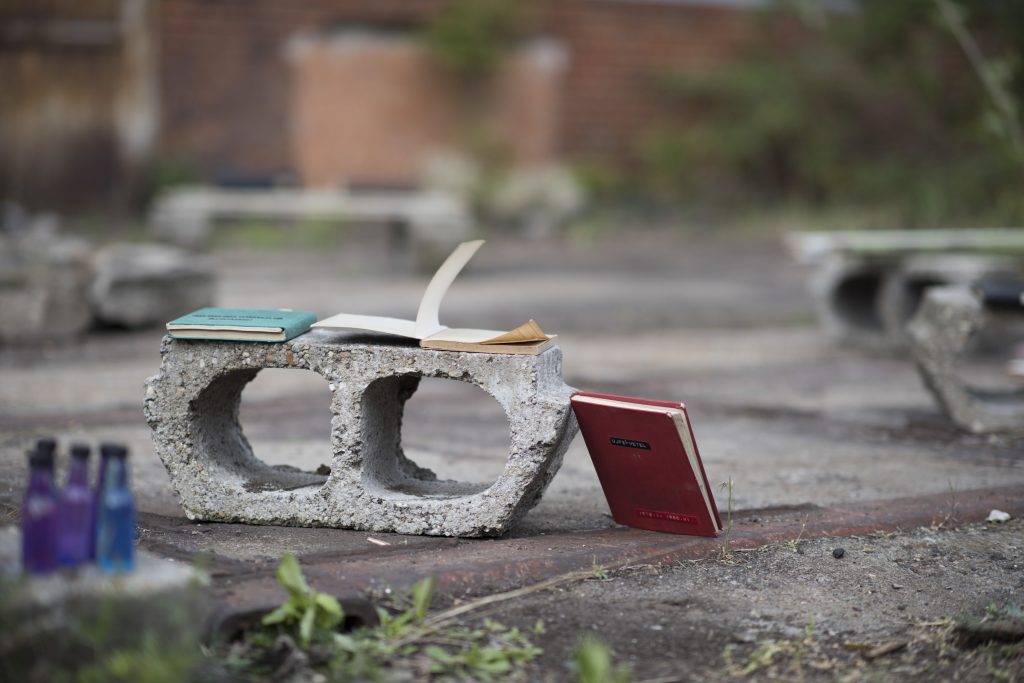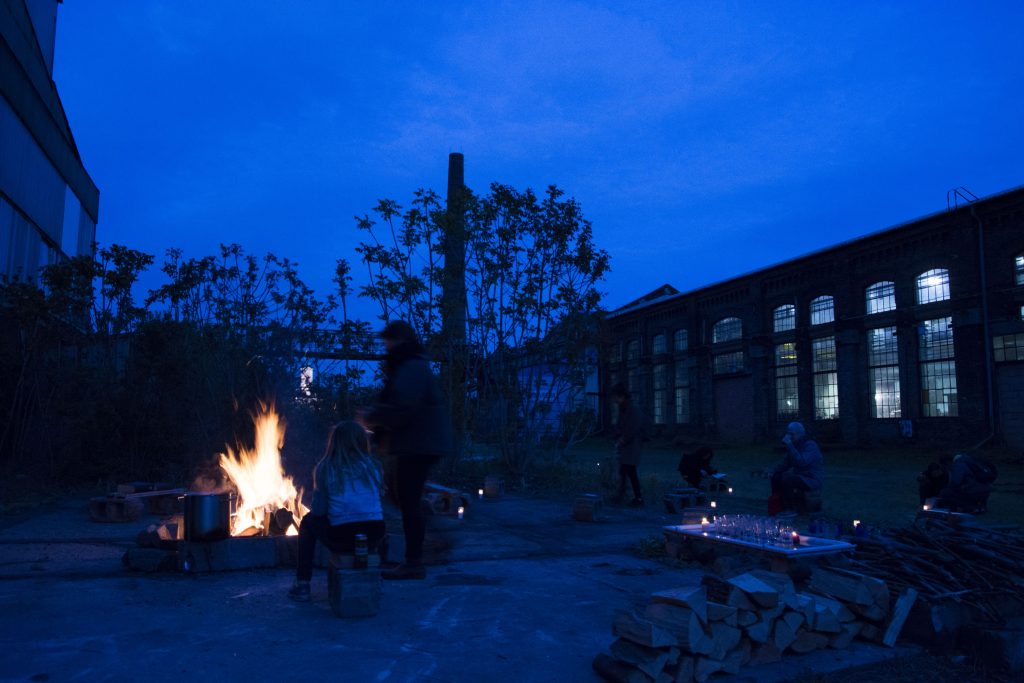The great riddle of human existence is not suffering, but the yearning for belonging. There is nothing strange about the fact that innocent people are murdered, tortured, forced to flee, degraded in need or in slavery, imprisoned or detained or concentration camps – as long as there exist criminals to perform these deeds. Neither is it strange that sickness can cause long-term suffering that paralyses one’s existence and reduces them to an image of death – since nature is subject to the blind game of mechanical laws. But it is strange that God has given a yearning for belonging the power to grip the innocent in depth of their soul and possess it as a sovereign lord. In the best case those who are marked by this yearning are only able to retain half of their soul. [1]
Capitalism is a totalitarian order. But as with all other systems, every order produces also a disorder – abjection, residues, secretions that leak out. Cities have a power that sucks in people, money, goods, and so forth and spits out that which is unnecessary – the unemployed, immigrants, criminals, artists – the neoliberal society’s slag. What happens if a person affirms that which does not belong, that which falls outside of the order, the rootless, stateless, and embodies the periphery?
We were invited into this research project, financed by an EEA Grant, to “investigate how one can contribute to redefine and rehabilitate industrial environments in Østfold and Budapest.” But for whom shall we fulfil this assignment? What kind of values do we create? Who is it that we serve?

The Place is the New Factory
The factory is an imaginary ruin. We continue to live in a machinery – an invisible machinery where we are docile workers. In Europe we produce less and less coal, metal and paper. Today we produce space, atmosphere and room. In this project artists are invited to fill the post-industrial vacuum. The factory, or, what Marguerite Duras called it, the proletariat’s grave, is empty and shall be filled with cultural industry. We shall cast imaginary magical powder over the old factories such that they are enshrouded by an aura of creativity. Thus are places bestowed with an image, an identity, a profile. Perhaps the place will become a magnet for tourists, an attractive urban space, a centre for innovation that attracts the creative class and wealthy tourists. The place may be filled with the immaterial, creativity’s aura where we ourselves are part of the atmosphere we shall consume. It is our very fellowship, which today is for sale.
Eternity’s Blue Colour
Rather than producing an artistic event, performance, or sound installation we are inviting the public to share a moment of uselessness. We wish to create a space in the post-industrial, linked with the cycle of the sun, where we may critically examine our own prejudices regarding the field of art in the public realm and qualms over the neoliberal society’s fetishizing of creativity. For what, actually, are the possibilities for artists in relation to the transformation of public space? Are not greater societal and existential transformations required, in order to preserve that which we are in the process of rendering meaningless?
The transition between day and night, the bridge between action and sleep, the blue hour, is the framework in which we have chosen to wonder and to share our wonder. To produce a space dedicated to the useless. The in-between, the emptiness, will be expanded to provide room for Simone Weil, for George Bataille, to all the outcasts, secretions, residues, to the homeless, to all the homeless – for who isn’t? A place for wasting time and space, where we place gentrification’s advance guard – the artists – around our table and ask them to be still. We offer a meditation over resolutelessness, attentiveness, and the absence of labour, where we can acknowledge that the utilitarian economy, to its furthest extent, has the valueless, the wasteful, and excess as its goal.
In addition to this waiting room in the post-industrial landscape, we have created another room – a book, to incorporate our thoughts, doubts, and reflections. This attempt at a guidebook, as a kind of strange compass with which to navigate this complex and multifarious field art in public space, may also be understood as a metaphor for an artistic viewpoint. For how one might love a place – how is this related to art?
For art in its deepest expression is a utopian endeavour to transform the world to a place where we belong.

ALKONY
Welcome to this space of time.
An imaginary space connected to the cycle of the sun.
Here it is not possible to not experience now.
Here you cannot lack time.
Here you cannot sell your time.
Here we waste time, and this is the only way our time can be saved.
In this zone you are welcome to wander around freely.
We request only one thing: that you remain silent.
[1] Translated from The Power of the Word by Simone Weil, Solum Forlag A/S, Oslo 1990